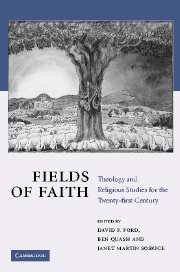12 - Justice
Published online by Cambridge University Press: 22 September 2009
Summary
It seems appropriate to start an essay in honour of Professor Nicholas Lash by citing the words of a former theologian at Cambridge as the basis for my discussion. In 1917 John Wood Oman, who from 1907 to 1935 was Professor of Systematic Theology and Apologetics at Westminster College, observed in his book Grace and Personality that ‘If the infallibilities have been overthrown by inquiry and reason, they cannot be raised again by affirmation or even by the strongest conviction of their utility.’ He went on to note that behind this question of the infallibilities lies a deeper question about whether we, in the face of history and experience, maintain the conception of God and man on which it rests.
This strikes me as a particularly apt observation for discussions about faith, politics and justice because it identi.es two key ideas. First, the observation raises important questions about political advocacy and therefore the appropriate contribution of a theological or religious perspective to contemporary politics. Second, it suggests that there is a relationship between activity in the public sphere and the concept of the self. This essay explores these general ideas by examining one way in which theology and religious studies can relate to contemporary issues of justice and politics. In this essay the wider term faith perspectives is used to capture not only the formal and theoretical aspects of theology and religious studies but also the more practical way in which faith operates within the lives of individuals.
- Type
- Chapter
- Information
- Fields of FaithTheology and Religious Studies for the Twenty-first Century, pp. 182 - 204Publisher: Cambridge University PressPrint publication year: 2005



